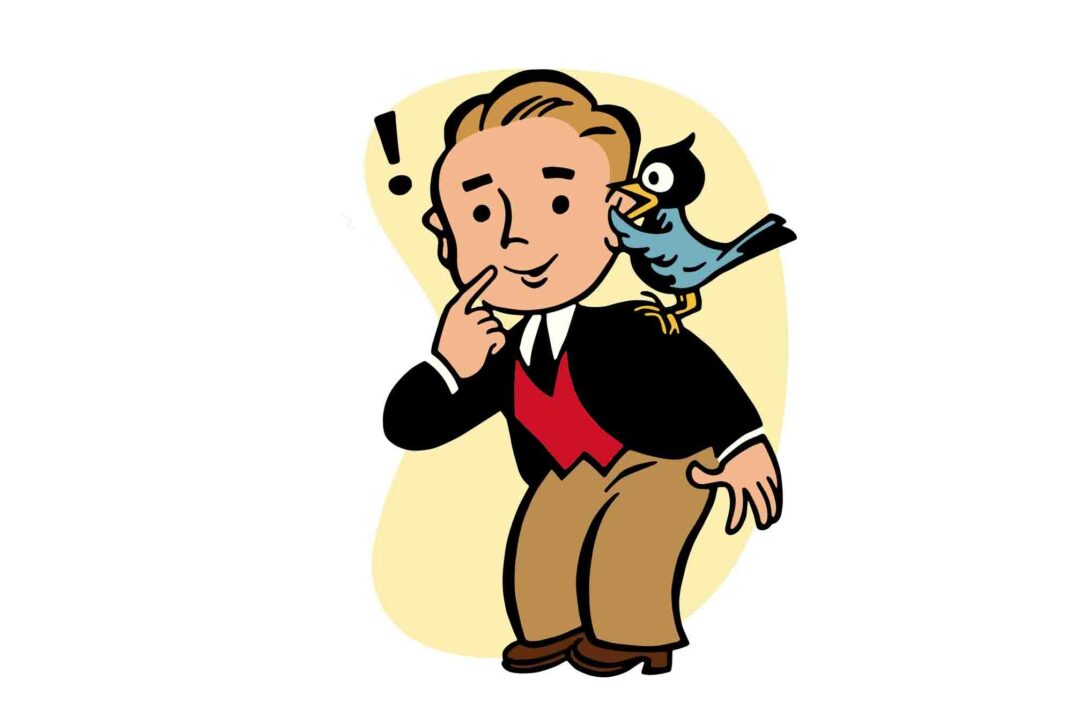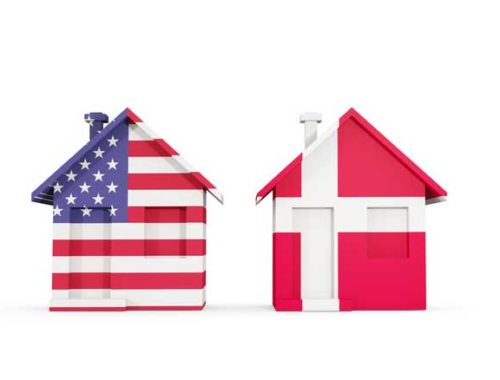Newcomers to Denmark often complain that the locals aren’t chatty. They don’t want to converse on the bus, or on the train, or in line at the supermarket, or really anyplace that isn’t a designated social zone. Like the company canteen at lunch, or a dinner party at home to which they have invited a precise number of people to match the number of chairs that they own.
In general, Danes rarely talk to strangers unless they are drunk, but there is one exception: Danish people over 75 years old.
Danes over 75, or even 70 or 65, often live alone, and they are often eager for conversation. There is even a special municipal program called Elderlearn that matches older Danes with newcomers who are eager to improve their spoken Danish abilities. The internationals get to practice speaking Danish, and the older person gets some company.
Comic situations
This does create some comic situations. I remember seeing a video – one of those videos I saw online years ago and haven’t been able to locate since – in which a nice fellow from India was matched with Kirsten, a Danish lady in her 80s.
He went to visit her on a lovely spring day with the idea they would take a walk in the garden of her nursing home. “Kirsten,” he asked. “Skal vi ikke tage en lur sammen?”
Kirsten smiled. She said, “Jeg tror, at du vil sige, skal vi tage en *tur* sammen?
He had mistakenly asked if Kirsten would like to take a nap with him – en lur – instead of a walk – en tur.
But she corrected him kindly.
Reflection of your home culture
As an international, your feelings about practicing Danish with older people might depend on the way your home culture treats the elderly.
If you come from Africa, or Asia, where old people are respected, you’ll probably enjoy working with them, once you adapt to the Danish way of interacting with the elderly.
A group of Nepali students in one of my audiences told me that their greatest challenge in Denmark was that the Danish language did not give them enough words to show respect for older people. They explained to me that showing this respect was an important part of Nepali culture.
I told them that in Denmark, old people don’t really expect much deference. They’re usually called by their first names, just like everybody else. Thirty years ago you might have called someone really old Herr Hansen or Fru Hansen, but not anymore.
The people who are old now are often children of the 1960s, which is when all those social formalities started to break down in Denmark.
Free home helpers
What old people in Denmark do expect, and get, is a lot of government services.
The official Danish retirement age is 67, which is one of the highest in the world, but when you’re 70 years old you generally have the right to tax-funded, free for you, home helpers, who will come to your house several times a week and help with whatever you need – cooking, cleaning, errands.
Generally, old people in Denmark do not live with their children, as they might in Nepal, or, India, or Italy, and they don’t live in assisted living or care homes, the way they might in the US or UK.
They live in their own apartments, often the same apartment they lived in during their working lives, until the point where they need 24 hour care and move to a nursing home.
Until then, their main problem is usually loneliness. Many older people go to fitness classes, art classes, bingo, whatever, but sometimes they’re on their own and open for a chat with a newcomer in a way that busy younger Danes are not.
I’ve had many long bus trips enlivened by the older person sitting beside me, including one today, where I met a lady wearing a floor-length fur coat and diamonds to bring back two bags of groceries from the local discount supermarket.
Choose your friend carefully
Still, choose your older friend carefully. There are some older Danes with rather backwards, old-fashioned, and frankly racist ways of thinking. The world has moved on, become more international, but some people haven’t moved on with it.
That said, if an older person reaches out to you, either personally or through a program like Elderlearn, they’re probably open to learning about your culture.
And they may have something that many younger Danish people can’t offer, which is a limited ability to speak English. The constant complaint among internationals trying to learn Danish is that Danes try to help them communicate by switching to English.
With a much older person, just like with a much younger person, you might really get to speak Danish.




